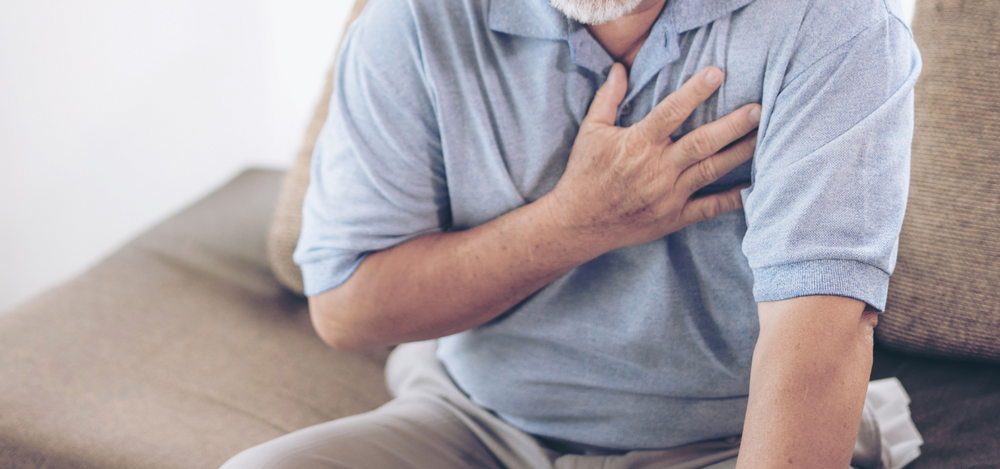Paying Attention to Unexplained Symptoms Could Save Your Life

About 1,000 Americans suffer sudden cardiac arrest every day, a catastrophic event that is almost always fatal. The most common cause is a heart attack which sets off an electrical storm within the heart, halting halting the heart’s ability to pump blood to the brain and to the rest of the body. Unless the heart is shocked back into rhythm promptly, death occurs within minutes.
Given how dramatic these events are, it’s generally assumed that cardiac arrest strikes without warning. However, studies reveal a different story: more than half of cardiac arrest patients experience symptoms in the 24 hours leading up to the event.
The most common warning signs are chest pain and shortness of breath. Unfortunately, over 80% of individuals who experience these symptoms choose to ignore them, often with tragic consequences. In fact, patients who call 911 when these symptoms arise have a survival rate of 32%, compared to just 6% for those who delay seeking help.
When Should You Seek Medical Attention?
We all experience occasional aches, pains, or shortness of breath, especially after exertion. So how do you know when these symptoms are serious?
My biggest piece of advice is that if your symptoms are new, unusual, or unexplained, don't ignore them. Whether it's chest pain that feels different from your normal indigestion or shortness of breath that seems to have no obvious cause, take these signs seriously. Call your doctor if your symptoms are new but not persistent. Seek emergency care right away if your symptoms are unrelenting or accelerating in frequency. In the worst-case scenario, you’ll be evaluated and sent home after a thorough check-up—and that’s a great outcome, especially when compared to the alternative.
Focus on Prevention
While cardiac arrest may seem like a “sudden” event, the underlying cause— coronary artery disease—develops over time. This means you have the power to markedly reduce your risk of ever experiencing sudden cardiac arrest by working on preventing coronary disease. This depends upon you addressing any contributors you may have to developing that. And given that the majority of those risk factors are driven in part or in whole by food, being more mindful of dietary choices is a critical long term strategy. People consuming a diet rich in whole, plant-based foods, experience fewer cardiac events. This is an incontrovertible fact. Step One Foods helps make that easier.
Bottom Line
Cardiac arrest is preventable but that doesn’t mean it can’t happen. Stay vigilant about your heart health by eating well, staying active, and paying attention to your body’s signals. When in doubt, always err on the side of caution—because when it comes to cardiac arrest, acting fast can save your life.

Tested & Proven Results.
- Cardiologist formulated
- Supported by over 500 publications
- Clinically-proven, in a double-blind randomized trial with Mayo Clinic and The University of Manitoba
80% of participants lowered their cholesterol in just 30 days. With just two servings per day, Step One Foods offers a proven-effective way to naturally lower LDL (bad) cholesterol.
Get heart health tips and articles like this, delivered right to your email.
New articles every week.
You may also like...

Spring Into Heart Health: The Best Seasonal Foods to Eat Now

You don’t need to avoid foods with cholesterol…except for these



